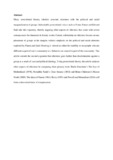| dc.contributor.author | Nyongesa, Andrew W. | |
| dc.contributor.author | Murimi, G. | |
| dc.contributor.author | Makokha, J. K. | |
| dc.date.accessioned | 2023-01-04T13:06:04Z | |
| dc.date.available | 2023-01-04T13:06:04Z | |
| dc.date.issued | 2021-07 | |
| dc.identifier.citation | International Journal of African Literary and Comparative StudiesVol. 12, No. 1 | en_US |
| dc.identifier.issn | 2663-6565 | |
| dc.identifier.uri | https://journals.co.za/doi/abs/10.25159/2663-6565/7694 | |
| dc.identifier.uri | http://hdl.handle.net/123456789/6161 | |
| dc.description.abstract | Many postcolonial literary scholars associate otherness with political and racial marginalisation of groups. Indomitable postcolonial voices such as Frantz Fanon and Edward Said take this trajectory, thereby negating other aspects of otherness that come with severe consequences for characters in literary works. Current scholarship on otherness focuses on any placement of groups at the margins without emphasis on the political and racial elements explored by Fanon and Said. Othering is viewed as either the inability to see people who are different as part of one’s community or a failure to see oneself as part of the community. This article extends the second argument that otherness goes further than discrimination against a group as a result of race and political ideology. Using postcolonial theory, the article analyses other aspects of otherness by comparing three primary texts: Buchi Emecheta’s (1979) The Joys of Motherhood, Nuruddin Farah’s (1983) Close Sesame and Brian Chikwava’s (2009) Harare North. The ideas of Fanon (1961), Rorty (1993) and Powell and Menendian (2016) will form a theoretical basis of interpretation. | en_US |
| dc.language.iso | en | en_US |
| dc.subject | African literature; Brian Chikwava; marginal spaces; otherness; postcolonialism | en_US |
| dc.title | Otherness and Marginal Spaces: Beyond Politics and Race in Contemporary African Novels | en_US |
| dc.type | Article | en_US |

